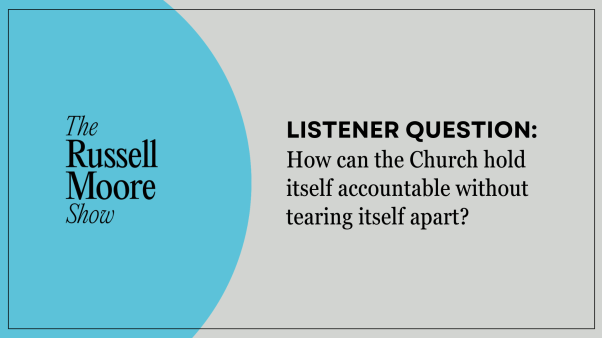On Tuesday, my husband and I settled in to see a 35mm screening of Interstellar, that movie that you need to see soon if you don't want to spend the next few months explaining to people that you haven't seen it. (Brett McCracken skillfully reviewed it for us when it released last week.)
I generally like Nolan's films, mostly because I like having my mind contorted. And, sorry, haters: I liked this one too, though it took me till That Really Crazy Mind-Bending Moment (you know the one) to be really into it. It's not really for the faint of heart, and there are definitely bits that don't work, story-wise. But in a pretty good year for movies, this is still a solid one.
The r/Religious movie question I've been writing about lately started clanging in my head right about when it looked like humanity was going extinct, which is to say in the opening credits. I didn't have a notebook handy, because I was trying to just watch the film and not write about it (hashtag fail).
But I did have some thoughts, and wanted to see what CT readers thought. So here are some conversation starters.
(Some unavoidable spoilers within.)
This is an inescapably (r)eligious film.
More than most movies I've seen this year.
Today, Megan Garber at The Atlantic said as much in a piece I strongly commend to you, perfectly nailing the distinction I wrote about two weeks ago:
None of which is to say that Interstellar is a Christian—or even a religious—film. It is not, and this is the point. The "they" is not necessarily a metaphysical being; Zimmer's organ was chosen, he has said, for "its significance to science." Good and evil, faith and love—these ideas, of course, extend far beyond religion.
What it is to say, though, is that Interstellar, like so many space movies before it, has adopted the themes of religious inquiry. The scope of space as a setting—the story that takes place within the context of the universe itself, across dimensions—has allowed Nolan, like so many filmmakers before him, the permission of implication.
Yes! Thank you, Megan Garber. She is also correct that outer space has proved a convenient setting for these stories, which—I’d add—is because even though we’ve ventured there, they still occupy the imaginative space that sci-fi does for most of us, and the purpose of sci-fi is to unsettle us by taking familiar stories and placing them in unfamiliar settings so we can consider them anew.
To me it seems that Interstellar, perhaps more than any of Nolan's films to date, positively resounds with religious—even Christian—stuff that might not ring as loudly if you weren't steeped in it to begin with.
To wit: Cooper promises Murph he'll return to earth, and she despairs of his return, then realizes he's been talking to her and guiding her all along, which rings awfully sharply of the early Christian church's assumption that Jesus would return within their lifetimes. And Cooper communicates with Murph through books (hello). He has “become” one of those beings who exists on more than three planes—you know, for a while at least, he's omnipotent and omniscient and omnipresent. There's the somewhat unavoidable new-Adam-and-Eve imagery near the end. And did anyone hear echoes of Lewis's Space Trilogy?
But there's also the biggest of big religious questions, like these: who are we? What are we made to be? (And should that be determined by others?) Are we worth saving? Can we save ourselves? And should we?
The answer the film gives—as Brett points out—is that we feel love, and that might be enough to save us, an answer many apocalyptic movies and TV shows are happy to give, including a few of my favorites, like Battlestar Galactica and Her. Critics are divided on whether this element works in Interstellar; I absolutely think it does, if only because I agree with it, and it seems obvious that Nolan considers love to be one of the dimensions (it moves across space and time and beyond barriers).
And sure, Cooper keeps saying that “they” aren’t beings, “they” are us, though I don’t see how that makes a big difference if only because by that point he has transcended his humanness by being outside of time and space. He has taken on the classical markers of deity (those "omni"s). But while I don't think the film gives specifically Christian answers to those questions, I don't particularly care: it works very hard to provoke them, and takes them seriously. It's a (r)eligious film that believes these are questions we should be thinking about.
Religion and science aren't enemies. Or even mutually exclusive.
Part of Interstellar's potential nonreligious nature hinges on science, or the movie's view of science. Which is to say that some people have assumed that if we figure something out via science—time, for instance, or space, or whatever—then it ceases to be a mystery.
Brett wrote this:
With its contemplative existential ruminations, awe-inspiring machinery and Hans Zimmer’s gorgeous, booming organ score, Interstellar feels a bit like a three-hour church service set in the cathedral of space. And yet God is not worshiped here or even discussed. Unlike similar films like last year’s Gravity or 1997’s Contact, which engaged questions of God and faith (Matthew McConaughey played a Christian leader in the latter), Interstellar exists in a world where God seems to have gone extinct alongside wheat and okra.
Despite God’s absence in Interstellar, the film nevertheless feels “church-like” in its artistic grandeur, intellectual curiosity, and probing of big questions about life, death, sacrifice and love (“the only thing that transcends space and time”).
I don't know. I agree with Brett on aesthetics, absolutely. But I'm still a little hung up on the narrative as being religious. This is, I think, because he uses the term "secular" elsewhere in his review to describe this cosmos in a slightly different light than I would; to me, "secular" doesn't mean "lacking in recognizably religious content," but rather allowing for a multiplicity of opinions about the answers to religious questions. I don't think Interstellar gives answers, and its world certainly is lacking in any chats about God, religion, or faith, but I do think it leaves the door open to possibilities that the characters don't recognize.
I have a degree in science, but it's computer science, so what do I really know? And yet, even though I know (I think) that there are people among us who can explain wormholes or relativity, it's still a giant, amazing mystery to me. Similarly, I actually can tell you how computers work—I have even written machine-level code, back in college—but for a lot of people those bits and bytes are a weird, crazy mystery.
So does science negate mystery? I'd think not, and I know scientists who would agree. After all, we seem to really “get” that the sun doesn't actually rise and set, because we're moving around it, and we've come up with ways of explaining why, but when you come right down to it, having all the science and math and explanations in the world doesn't make it less amazing that we are here, on a planet that rotates the sun, and it's regular and we can count on it and we have been able to for a long time, and let me repeat this again: we are here.
There’s a tremendous amount about us we don’t know. I mean, I’m here, sitting at a laptop someone invented, writing to you about a movie someone made that a bunch of us see and talk about, and what are the odds? What are the odds?
At several moments in Interstellar, characters note that the mystery of love may be an impulse—a dimension, I suspect—worth following even more than data, and that the fact that humans don't understand how love works yet doesn't mean it's not legitimate. Dr. Brand points out (and her father illustrates) that we love for reasons that don't make sense scientifically, but that doesn't negate them. And of course, some of the “scientific” facts—the data, the info—wind up being faulty.
As Garber says:
While the film has a marked admiration for science—it is science, in the end, that helps humanity to rescue itself—it has just as much respect for wonder and awe and what you might call, in the broadest and perhaps even the narrowest sense, faith. Its villains are the characters who trust too much in logic, without the ballast of something more transcendent. They are the ones who choose physical survival over everything else—who prioritize living, you could say, over life.
I guess the point I'm making is that of any film I've seen in a long time, perhaps since 2001: A Space Odyssey, Interstellar reminded me that just because we understand a mystery, it isn't really less mysterious; just because we understand a mystery doesn't make it less worthy of marvel. I took earth science, and I get that the stars are far away and I understand why sometimes the moon is really huge or that if I go to the right place at the right time I'll see the aurora borealis because of reasons people can explain.
But gee whiz, you guys. It still makes me go wow.
And so does love.
I originally titled this article “I Have Some Thoughts About Interstellar,” so here are some other thoughts at random, TV-recap style:
- Uh, did you know Jessica Chastain was in this movie? Or Topher Grace, or Matt Damon, or John Lithgow, or Casey Affleck? It was basically a who's who of my favorite acting people.
- As I mentioned above, Tom and I saw the film in 35mm, a choice made largely because our favorite movie theater was only showing it in 35mm. I'd be up for seeing it in IMAX, but actually I'm quite pleased with the choice, for this reason: everything about that experience threw me back into an earlier movie-watching memory, seeing Spielberg-style blockbusters on the big screen complete with graininess and the wheeee of the projector behind my head. That made the bleeding-edge technology on screen even more eye-popping.
- And I audibly yelped when we got to the inside-the-black-hole scenes. Maybe I was a weird kid, but I had a lot of dreams that were exactly like this. Did you?
- I love TARS. Actually love him, fifth-dimension style. When he picks up Brand and takes off for the spacecraft? Throat-lumps.
Got thoughts? Comment below, or tweet me @alissamarie.









